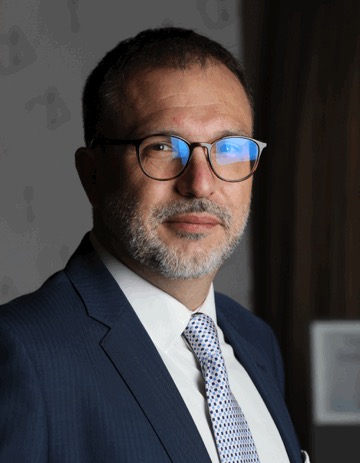Studying at the University of Verona
Here you can find information on the organisational aspects of the Programme, lecture timetables, learning activities and useful contact details for your time at the University, from enrolment to graduation.
Academic calendar
The academic calendar shows the deadlines and scheduled events that are relevant to students, teaching and technical-administrative staff of the University. Public holidays and University closures are also indicated. The academic year normally begins on 1 October each year and ends on 30 September of the following year.
Course calendar
The Academic Calendar sets out the degree programme lecture and exam timetables, as well as the relevant university closure dates..
| Period | From | To |
|---|---|---|
| 1° semestre (A) | Sep 26, 2019 | Nov 9, 2019 |
| 1° semestre (B) | Nov 11, 2019 | Dec 23, 2019 |
| 2° semestre (A) | Feb 6, 2020 | Mar 14, 2020 |
| 2° semestre (B) - marzo/aprile 2020 | Mar 16, 2020 | Apr 4, 2020 |
| 2° semestre (B) - aprile/maggio 2020 | Apr 15, 2020 | May 9, 2020 |
| Session | From | To |
|---|---|---|
| Sessione invernale - 2 appelli | Jan 8, 2020 | Feb 5, 2020 |
| Sessione estiva - 2 appelli | May 22, 2020 | Jul 14, 2020 |
| Sessione autunnale - 2 appelli | Aug 26, 2020 | Sep 23, 2020 |
| Session | From | To |
|---|---|---|
| Sessione autunnale - 28 ottobre 2019 | Oct 28, 2019 | Oct 28, 2019 |
| Sessione straordinaria - 9 aprile 2020 | Apr 9, 2020 | Apr 9, 2020 |
| Sessione estiva - 1 luglio 2020 | Jul 1, 2020 | Jul 1, 2020 |
| Period | From | To |
|---|---|---|
| Festa di Ognissanti | Nov 1, 2019 | Nov 1, 2019 |
| Festa dell'Immacolata | Dec 8, 2019 | Dec 8, 2019 |
| Vacanze di Natale | Dec 24, 2019 | Jan 6, 2020 |
| Vacanze di Pasqua | Apr 10, 2020 | Apr 14, 2020 |
| Festa della Liberazione | Apr 25, 2020 | Apr 25, 2020 |
| Festa del lavoro | May 1, 2020 | May 1, 2020 |
| Festa della Repubblica | Jun 2, 2020 | Jun 2, 2020 |
Exam calendar
Exam dates and rounds are managed by the relevant Law Teaching and Student Services Unit.
To view all the exam sessions available, please use the Exam dashboard on ESSE3.
If you forgot your login details or have problems logging in, please contact the relevant IT HelpDesk, or check the login details recovery web page.
Should you have any doubts or questions, please check the Enrollment FAQs
Academic staff
 eleonora.branca@univr.it
eleonora.branca@univr.it
 stefanomaria.cianciotta@univr.it
stefanomaria.cianciotta@univr.it
 roberto.flor@univr.it
roberto.flor@univr.it
 marco.giusti@univr.it
marco.giusti@univr.it
 gianluigi.lucietto@univr.it
gianluigi.lucietto@univr.it

Migliorati Lorenzo
 lorenzo.migliorati@univr.it
lorenzo.migliorati@univr.it
 045802 8135
045802 8135
 stefania.pontrandolfo@univr.it
stefania.pontrandolfo@univr.it
Study Plan
The Study Plan includes all modules, teaching and learning activities that each student will need to undertake during their time at the University.
Please select your Study Plan based on your enrollment year.
1° Year
| Modules | Credits | TAF | SSD |
|---|
1 module to be chosen between the following1 module to be chosen between the following1 module to be chosen between the following1 module to be chosen between the following2° Year activated in the A.Y. 2020/2021
| Modules | Credits | TAF | SSD |
|---|
1 module to be chosen between the following1 module to be chosen between the following1 module to be chosen between the following| Modules | Credits | TAF | SSD |
|---|
1 module to be chosen between the following1 module to be chosen between the following1 module to be chosen between the following1 module to be chosen between the following| Modules | Credits | TAF | SSD |
|---|
1 module to be chosen between the following1 module to be chosen between the following1 module to be chosen between the following| Modules | Credits | TAF | SSD |
|---|
Legend | Type of training activity (TTA)
TAF (Type of Educational Activity) All courses and activities are classified into different types of educational activities, indicated by a letter.
Criminal Law for public administrations (2020/2021)
Teaching code
4S003641
Teacher
Coordinator
Credits
6
Language
Italian
Scientific Disciplinary Sector (SSD)
IUS/17 - CRIMINAL LAW
Period
1° periodo di lezioni - GEM dal Sep 30, 2020 al Dec 19, 2020.
Learning outcomes
The course will provide, principally starting with two critical macro-sectors of criminal law, the conceptual, methodological and cultural basis to understand and study the categories and the general principles, developing the capacity in using correct and specific technical language. At the end of the course students will be ablet o understand, on the one hand, the emerging and current criminal phenomena in the technological context (i.e. in particular terrorism, cyber-terrorism, cyber attacks and „cyber-war“) and, on the other side, the criminal offences regarding the public adminstraions, identifiyng the application/leading solutions through the most appropriate reasoning and legal arguments.
Program
PROGRAM
The course is divided into the following parts:
1. Serious and transantional criminal phenomena and criminal law
2. National and European Criminal Law, in sovranational perspective; general principles of the Italian Criminal Law; the europeanisation of the Criminal Law, the role of the ECG
3. Crime against the public administration (artt. 357 - 360 p.c., 314 - 335-bis p.c., 336, 337, 340, 341-bis, 346, 346-bis, 348, 353 - 356, 393-bis p.c., included Law 190/2012 and corporate liability.
4. Cybercrime and current perspective, at national, european and sovranational levels
TEACHING METHODS
Students attending classes:
traditional lectures and workshop with use of slides and/or video, as well as group discussions and analysis of domestic and european cases, so as to instruct students on how the knowledge acquired through the course can be applied in individual case studies.
Students may write a paper on specific topics, which will be evaluated and will replace part of the final exam.
Students not attending classess:
individual study of the parts of the book indicated in “Reference books”.
Erasmus Students:
Erasmus students must fix an appointment with the Professor in order to select an individual program, taking into consideration also the State of origin. Students may write a paper on specific topics in comparative perspective, which will be evaluated and will replace part of the final exam.
MATERIALS
All students may use the online course (didattica online), which will contain the materials and the website of the Cybercrime Observatory (http://sites.les.univr.it/cybercrime/).
The book of the course is indicated in “Reference books”.
OFFICE HOURS
Office hours are published on the personal webpage of the School of Law. For special reasons students may ask to fix an appointment at different time.
OFFICIAL LANGUAGE:
Italian.
| Author | Title | Publishing house | Year | ISBN | Notes |
|---|---|---|---|---|---|
| A. CADOPPI, S. CANESTRARI, A. MANNA, M. PAPA | Cybercrime - Trattato Omnia | UTET | 2019 | ISBN 9788859818700 | Limitatamente alla parte prima, cap. II e III |
| R. Bartoli, M. Pelissero, S. Seminara | Diritto penale. Lineamenti di Parte Speciale | Giappichelli Editore, Torino | 2021 | Limitatamente alle parti relative al programma del corso |
Examination Methods
The final exam is oral and the official language is Italian. Erasmuns students may ask, for justified reasons, to take the exam in English.
No midterm exams are planned.
The oral exam has the purpose of assesing the level of the study and the knowledge, the language properties, the capacity to connect systematically the understanding and the knowledge, and the analitycal and the arguing ability.
Grades are awarded on a scale from 18 to 30, where 30 is the highest grade and 18 is the lowest grade to pass the exam.
The exam consists on an open question for each part of the program, which are of equal importance.
In case of an excellent knowledge and a high level of problem-solving capacity the candidate may earn the highest grade with “cum laude” honor.
Students attending classes and Erasmus students may write a paper on specific topics, which will be evaluated and will replace one or more parts of the final exam, depending on the topics chosen.
Type D and Type F activities
Le attività che consentono l’acquisizione dei crediti riservati alle attività formative a libera scelta dello studente (TAF D) sono le seguenti:
• Un insegnamento attivato nei Corsi di studi afferenti al Dipartimento di Scienze Giuridiche;
• Un laboratorio didattico attivato nei Corsi di studi afferenti al Dipartimento di Scienze Giuridiche;
• Un insegnamento previsto dall’Offerta Formativa di Ateneo, non impartito nell’ambito dei corsi di studi afferenti al Dipartimento di Scienze Giuridiche: il riconoscimento dei crediti acquisiti sarà subordinato alla preventiva presentazione di coerenti programmi formativi valutati e approvati dal Collegio didattico.
• Attività formative organizzate dai singoli docenti del Collegio didattico o del Dipartimento di Scienze Giuridiche: previa approvazione del Collegio;
• Attività formative che implicano la partecipazione a convegni o seminari organizzati sotto il “logo” del Dipartimento di Scienze Giuridiche o dell’Ateneo: devono essere preventivamente approvate dal Collegio didattico indicando un docente di riferimento del Collegio didattico ovvero del Dipartimento di Scienze Giuridiche.
• Attività formative che implicano la partecipazione a convegni o seminari organizzati prive del “logo” del Dipartimento di Scienze Giuridiche o dell’Ateneo: devono essere approvate dal Collegio didattico indicando un docente di riferimento del Collegio didattico ovvero del Dipartimento di Scienze Giuridiche.
Le attività che consentono l’acquisizione dei crediti riservati alle ulteriori attività formative (TAF F) sono le seguenti:
• Ulteriori competenze linguistiche (6 cfu)
• Stage o Project Work (6 cfu)
Al link https://www.univr.it/it/i-nostri-servizi/segreterie-studenti/giurisprudenza#categdoc_7103 la modulistica per l'inserimento di attività non selezionabili in autonomia dallo studente in sede di compilazione del piano degli studi
| years | Modules | TAF | Teacher |
|---|---|---|---|
| 1° 2° | (1 cfu) seminari centro studi arendt – 2019 | D |
Olivia Guaraldo
(Coordinator)
|
| 1° 2° | (2 cfu) seminari centro studi arendt – 2019 | D |
Olivia Guaraldo
(Coordinator)
|
| 1° 2° | (3 cfu) seminari centro studi arendt – 2019 | D |
Olivia Guaraldo
(Coordinator)
|
| 1° 2° | International and Local Issues – Shaping Future | D | Not yet assigned |
| 1° 2° | The communication throughout emergency - 2019 | D |
Stefano Maria Cianciotta
(Coordinator)
|
| 1° 2° | GARDENS IN REVOLUTION: STRATEGIC NETWORKS FOR COMMON GREENING | D |
Matteo Nicolini
(Coordinator)
|
| 1° 2° | A COMMON GREEN MAPPING | D | Not yet assigned |
| 1° 2° | THE PRESENT AND THE FUTURE OF THE PLANET. ECOLOGY, SUSTAINABILITY, POLICIES – THE SUSTAINABLE DEVELOPMENT | D |
Veronica Polin
(Coordinator)
|
| 1° 2° | Risk and protection | D |
Veronica Maria Casartelli
(Coordinator)
|
| 1° 2° | Univero’ 2019 | D |
Tommaso Dalla Massara
(Coordinator)
|
Career prospects
Module/Programme news
News for students
There you will find information, resources and services useful during your time at the University (Student’s exam record, your study plan on ESSE3, Distance Learning courses, university email account, office forms, administrative procedures, etc.). You can log into MyUnivr with your GIA login details: only in this way will you be able to receive notification of all the notices from your teachers and your secretariat via email and soon also via the Univr app.
Student mentoring
Internships
Internships are aimed at enabling students to gain direct knowledge of the world of work and to acquire specific professional skills.
Internships are carried out under the responsibility of an individual lecturer, and can be carried out in professional firms, public administration bodies and companies recognised by the University of Verona.
Any CFU credits gained by doing internships will be recognised and recorded by the University in accordance with the relevant University regulations in force (Regolamento d’Ateneo per il riconoscimento dei crediti maturati negli stage universitari).
For further information on internships, please go to: https://www.univr.it/it/i-nostri-servizi/stage-e-tirocini.
Language skills
Graduation
List of theses and work experience proposals
| theses proposals | Research area |
|---|---|
| Analisi e riorganizzazione delle strutture comunitarie | Various topics |
| La social network analysis applicata allo studio dei contesti colpiti da eventi catastrofici | Various topics |
| L'intervento sociale in situazioni d'emergenza | Various topics |
| Politiche d'intervento in condizioni d'emergenza | Various topics |
| Terzo settore e gestione delle situazioni d'emergenza | Various topics |





















